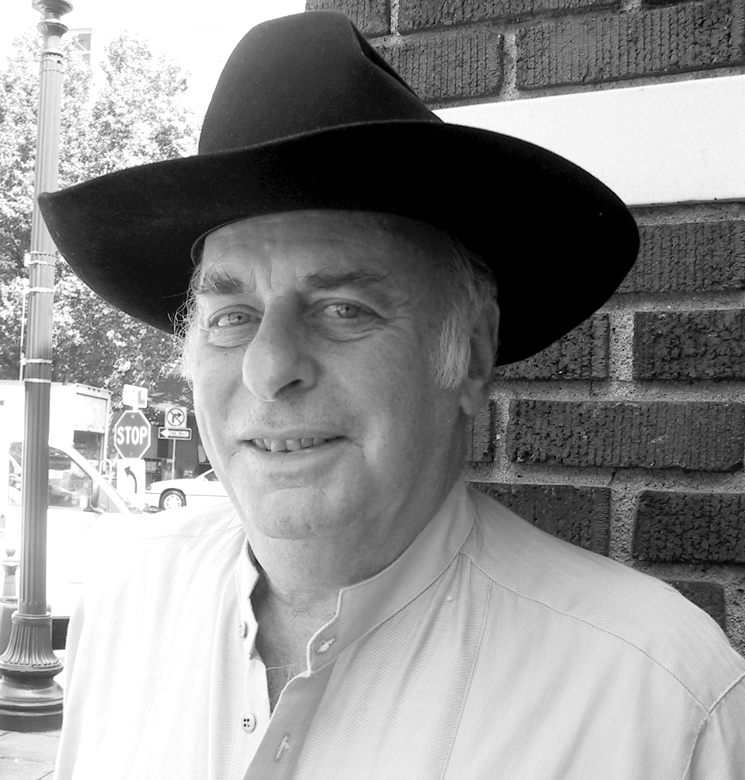Editor’s note: As this long-running series of essays on the history of Asheville’s riverfront winds down, the ninth installment takes a turn toward the satirical. The previous pieces were “The Birth of Asheville’s Industrial Riverfront,” “The Ballad of Old King Coal,” “Insurrection in the Kingdom,” “Ragtime and Ruin,” “Hard Times and Cheap Thrills,” “Cataclysmic Change,” “Kingdom at War” and “Thank God It’s Over!”
BY JERRY STERNBERG
The trains roared through the next four decades and on into the ’80s, quite often bypassing the businesses alongside the tracks en route to the powerhouse, the mighty fortress where Old King Coal was making his last stand. The demand for electricity had grown exponentially, and the generating plant made possible the region’s ever-increasing growth, both in population and in new and different job opportunities.
The irony of the situation was that Prince Diesel had captured all the railroad engines. Thus, coal was no longer used to propel the very behemoths that delivered it.
Prince Diesel had proved to be a much more popular regent, because he didn’t fill the air with smoke and soot. Gradually, the region began to lose its drab, gray look and get its color back. He was assisted in this big shift by the many coal-burning industries that either went out of business or converted to other fuels.
As many of the old dilapidated and shuttered buildings in the River Kingdom were vacated, essential businesses such as auto wreckers, auto repair companies, fuel oil and bottled gas distributors, small manufacturing plants and recycling facilities moved in, taking advantage of the cheap rents and the heavy industrial zoning. Concentrated along the river corridor, they didn’t pose a threat or distraction to most of the residential, commercial and retail community.
Meanwhile, the ever-present if physically deteriorating tobacco temples still thrived. But wait: For the first time, the drumbeat sounded by militant apostates began to challenge Prince Tobacco’s empire. Could it be that the health benefits of the sacred herb touted in these temples were now being questioned? Was it possible that the seductress Queen Nicotine had started to fall out of favor, just as Queen Vashti did in the Purim story? Could it be, as growing numbers of detractors claimed, that her paramour, the black knight A. Dick Shun, was indeed causing sickness and death?
During this period, the Asheville Motor Speedway became an iconic destination. Every Friday night, a sold-out stadium would thrill to the roar of the engines and the skills of the incredible speedsters who navigated their motorized chariots over this very short and difficult track. These rabid fans enjoyed an indescribable feeing of belonging and identification as they cheered for their favorite drivers, many of them local heroes.
Mostly they were good ol’ boys with day jobs who raced mainly for fun, and they were like family to the fans. The track also brought in out-of-towners, some of whom created successful businesses as part of what became the billion-dollar NASCAR industry.
And then, in 1987, shazam!!!! A bolt of lightning struck, and when the smoke had cleared, a beautiful, brilliant and determined sorceress had appeared on the scene. It was rumored that she could wave her magic wand in the direction of a political body or a charitable foundation and vast amounts of money would come pouring in.
Her name was Karen, and her last name rhymed with linoleum. She became the high priestess of what the riverfront property owners initially saw as a dangerous new cult whose members had a frightening gleam in their eyes. The fact that these interlopers mostly came from faraway kingdoms only heightened those anxieties. The newcomers worshipped at the feet of the Right Rev. Wilma Dykeman, a local deity whose writings took on the prominence and influence of the Holy Grail.
In pursuit of their vision they held a “clarinet,” a strange ritual where they all got down on their knees on the floor and drew pictures of how they thought the river corridor should develop. Although the property owners were invited to take part, they felt they were being condescended to by fanatics who believed their worthy goal justified any means of achieving it. After all, the attitude seemed to be, what did these loutish local people know? They merely owned the property in question. Were the carpetbaggers invading once again?
These distressed business owners, who came to be known as the River Rats, reached out for a leader who was one of their own. They found their man: a handsome, brilliant and astute young knight with a reputation as a political gunslinger and fearless street fighter (see photo above).
He had previously been president of the prestigious Buncombe County Garbage Haulers Association, where his dazzling handiwork had succeeded not only in protecting the commercial and residential garbage haulers but in helping them develop a franchise system that enabled them to make a decent living while ensuring that residents would receive great service at a fair price and be protected from unscrupulous operators.
This tremendous knight was a very stable genius, and the River Rats elected him president for life. (No, his name was not Trump; I told you, he is pictured above.)
Next time: The battle is joined.
Asheville native Jerry Sternberg, a longtime observer of the local scene, can be reached at gospeljerry@aol.com.



Before you comment
The comments section is here to provide a platform for civil dialogue on the issues we face together as a local community. Xpress is committed to offering this platform for all voices, but when the tone of the discussion gets nasty or strays off topic, we believe many people choose not to participate. Xpress editors are determined to moderate comments to ensure a constructive interchange is maintained. All comments judged not to be in keeping with the spirit of civil discourse will be removed and repeat violators will be banned. See here for our terms of service. Thank you for being part of this effort to promote respectful discussion.